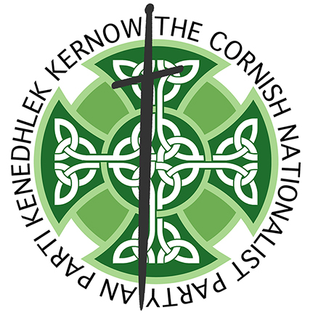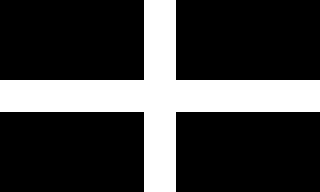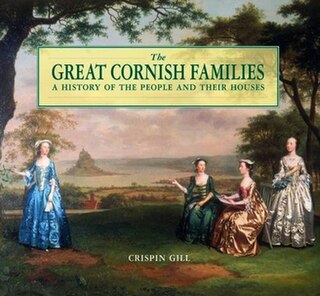
Cornwall is a ceremonial county in South West England. It is recognised by Cornish and Celtic political groups as one of the Celtic nations, and is the homeland of the Cornish people. The county is bordered by the Atlantic Ocean to the north and west, Devon to the east, and the English Channel to the south. The largest settlement is Falmouth, and the county town is the city of Truro.

The Cornish Nationalist Party is a political party, founded by Dr James Whetter, who campaigned for independence for Cornwall.

Mebyon Kernow – The Party for Cornwall is a Cornish nationalist, centre-left political party in Cornwall, in southwestern Britain. It currently has five elected councillors on Cornwall Council, and several town and parish councillors across Cornwall.

The history of Cornwall goes back to the Paleolithic, but in this period Cornwall only had sporadic visits by groups of humans. Continuous occupation started around 10,000 years ago after the end of the last ice age. When recorded history started in the first century BCE, the spoken language was Common Brittonic, and that would develop into Southwestern Brittonic and then the Cornish language. Cornwall was part of the territory of the tribe of the Dumnonii that included modern-day Devon and parts of Somerset. After a period of Roman rule, Cornwall reverted to rule by independent Romano-British leaders and continued to have a close relationship with Brittany and Wales as well as southern Ireland, which neighboured across the Celtic Sea. After the collapse of Dumnonia, the remaining territory of Cornwall came into conflict with neighbouring Wessex.

The constitutional status of Cornwall has been a matter of debate and dispute. Cornwall is an administrative county of England.

The culture of Cornwall forms part of the culture of the United Kingdom, but has distinct customs, traditions and peculiarities. Cornwall has many strong local traditions. After many years of decline, Cornish culture has undergone a strong revival, and many groups exist to promote Cornwall's culture and language today.
The Cornish people or Cornish are an ethnic group native to, or associated with Cornwall and a recognised national minority in the United Kingdom, which can trace its roots to the Brittonic Celtic ancient Britons who inhabited Great Britain from somewhere between the 11th and 7th centuries BC and inhabited Britain at the time of the Roman conquest. Many in Cornwall today continue to assert a distinct identity separate from or in addition to English or British identities. Cornish identity has also been adopted by some migrants into Cornwall, as well as by emigrant and descendant communities from Cornwall, the latter sometimes referred to as the Cornish diaspora. Although not included as a tick-box option in the UK census, the numbers of those writing in a Cornish ethnic and national identity are officially recognised and recorded.

Cornwall is administered as a county of South West England whose politics are influenced by a number of issues that make it distinct from the general political scene in the wider United Kingdom, and the political trends of neighbouring counties. Its position on the geographical periphery of the island of Great Britain is also a factor.
Nick Darke (1948–2005) was a British playwright. He was also known within Cornwall as a lobster fisherman, environmental campaigner, and chairman of St Eval Parish Council.
Philip John Payton is a British-Australian historian and Emeritus Professor of Cornish and Australian Studies at the University of Exeter and formerly Director of the Institute of Cornish Studies based at Tremough, just outside Penryn, Cornwall. An Australian citizen, he is Professor of History at Flinders University in Adelaide, South Australia.

Cornish nationalism is a cultural, political and social movement that seeks the recognition of Cornwall – the south-westernmost part of the island of Great Britain – as a nation distinct from England. It is usually based on three general arguments:
There are seventeen disused railway stations on the Cornish Main Line between Plymouth in Devon and Penzance in Cornwall, England. The remains of nine of these can be seen from passing trains. While a number of these were closed following the so-called "Beeching Axe" in the 1960s, many of them had been closed much earlier, the traffic for which they had been built failing to materialise.
Bernard W. Deacon is a Cornish multidisciplinary academic, based at the Institute of Cornish Studies of the University of Exeter at the Tremough Campus. He has an Open University doctorate and displays his thesis on the ICS website.
Antony Charles Thomas, was a British historian and archaeologist who was Professor of Cornish Studies at Exeter University, and the first Director of the Institute of Cornish Studies, from 1971 until his retirement in 1991. He was recognised as a Bard of the Cornish Gorseth with the name Gwas Godhyan in 1953.
Oliver James Padel is an English medievalist and toponymist specializing in Welsh and Cornish studies. He is currently Honorary Research Fellow in the Department of Anglo-Saxon, Norse, and Celtic, in the University of Cambridge. and visiting professor of Celtic at the University of the West of England

Cornwall played a significant role in the English Civil War, being a Royalist enclave in the generally Parliamentarian south-west.

Great Cornish Families: A History of the People and Their Houses is a book by Crispin Gill, published in 1995. A second edition was published in 2011 (ISBN 978-0-85704-083-1). Crispin Gill, at the time of the book's publication, lived in Plymouth and was assistant editor of the Western Morning News. The book names many notable families that have featured prominently in Cornwall's history.
Alan M. Kent was a Cornish poet, dramatist, novelist, editor, academic and teacher. He was the author of a number of works on Cornish and Anglo-Cornish literature.
The Battle of Hehil was a battle won by a force of Britons, probably against the Anglo-Saxons of Wessex around the year 720. The location is unknown, except that it was apud Cornuenses.

Angarrack railway viaduct crosses the valley of the Angarrack River at Angarrack in west Cornwall, England, United Kingdom.










